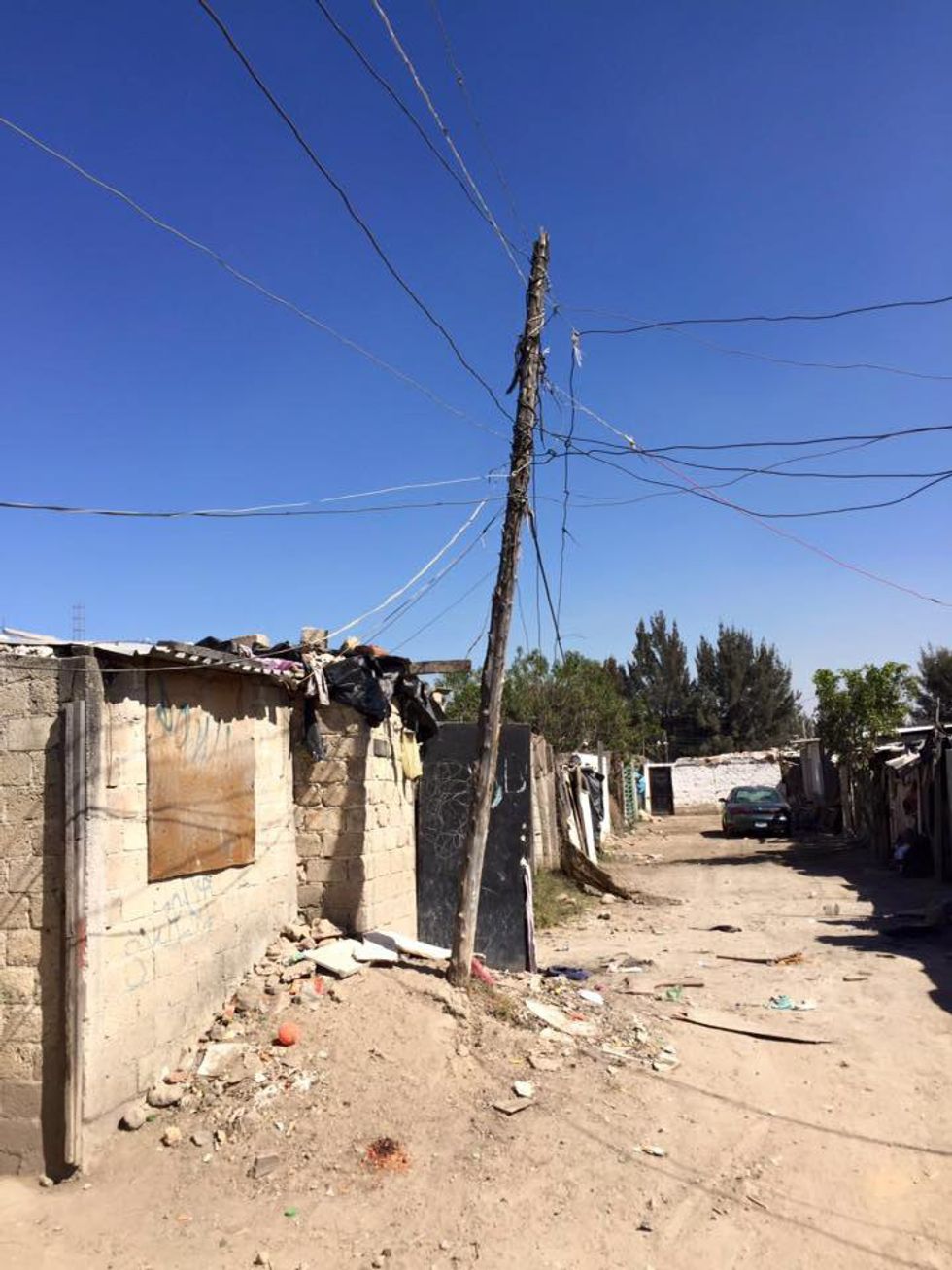For the past ten years I have been living in Guadalajara, Mexico's second largest city, which is also one of the fastest growing cities in the region, hence, earning its unofficial name as the Silicon Valley of Latin America. I want to first clarify that the purpose of this article is to show a personal experience in regards of the situation and to show a face to this problem, rather than just numbers.
As an expat residing in Guadalajara, for the majority of time I have been blinded from the reality that many people in this fast pacing city deal as their reality. A reality that is so raw that forces its poorest inhabitants to be involved in either the consumption of drugs or the illegal commercialization of it to escape poverty.
It wasn't until 2016's Spring Break where I went, together with a couple of classmates, to one of the most impoverished communities in the city called "El Rehilete", which basically means in English "The Windmill". Another thing that you need to take into consideration about this community is that it is an illegal settlement, which is a result of the immigration of indigenous people to the city for better job opportunities in an area that was not predetermined by the government to become a residential area.
The reason of my visit was to introduce some educational projects that will guide its residents towards a better future. So to be more specific, we gave a first aid course, a course about how to prepare soaps and toothpastes, and a course about how to prepare your own compost and urban orchard, while at the same time making integrative activities for the children of the community so that they could let their parents assist the courses while they interact with other children of their community.
So in order to make a presence in "El Rehilete", we went from house to house to promote our activities and gain interest from the residents of the community. So each morning we would do that for two hours or so.
Everything was so new to me. All the houses were built by using recycled materials such as tires, wood panels, and other types of materials that most of us would consider rubbish. Also, derby was everywhere, thus to protect houses from flooding when rain hits the area. There weren't much cars though, which really denounced the ones who had one, and also that most of the them were polarized (a clear indication of narc involvement in Mexico). Another thing that I noticed is the huge business of cockfighting. While walking on the streets we saw some "cholos" preparing their rooster for a future fight. It can be considered a really important factor in people's life in the area due to the fact that it can boost some revenue for the families that participate in this violent event. Another thing that I noticed is the "flying people" which was an acronym given by some kids in the community to the junkies/ alcoholics, which you could usually see them prowl throughout the streets at every moment of the day. So from this experience comes my first learning about the poverty in Mexico; people are escaping their reality by drugs and violent activities such as cockfights and being involved in dealing with drugs.
I learned that most people get into drugs by not even wanting to and by a relative young age due to hunger. Yes, by hunger. People inhale thinners and other substances to get high to forget about their hunger and survive another day. This addiction can develop I'm the consumption of marihuana, heroin, or cocaine. So basically if you don't have money you either need to become the consumer or the provider.
Another thing that I learned is that although drug consumption is a prominent problem that has affected the community of "El Rehilete" , it is still part for the no ending cycle of poverty, which would be the main cause of what the residents of the community are experiencing on a daily basis. So basically, if you don't go to school, you cannot get a higher paying job, if you don't have that job you cannot pay for basic services, and if you don't have basic services such as water and food, you can't send your kids to school (they don't accept kids who do not look clean at school) and you will need to drug your kids so that they won't feel the hunger, and this goes on and on...
I also learned that a great amount of residents are willing to take action to change the unfortunate situation they are living in; it was awe inspiring experience to see hope in their eyes while giving them the courses previously mentioned. People in the community accepted us and welcomed us as if it was our second home, and that's that before arriving to the community we were bombarded by articles and governmental reports warning us about the situation in the community. For which I came with this last lesson and conclusion: numbers may scare, while an open heart attracts love and hope. So in order to create change in impoverished areas, we need to start looking up to the community’s faces rather than its numbers. And don’t get me wrong, it’s plausible to refer numbers to have a more objective analysis in regards of the situation in there; however, if we want to improve the quality of life of these people, we should start providing them with a solution based on a face to face contact.

























